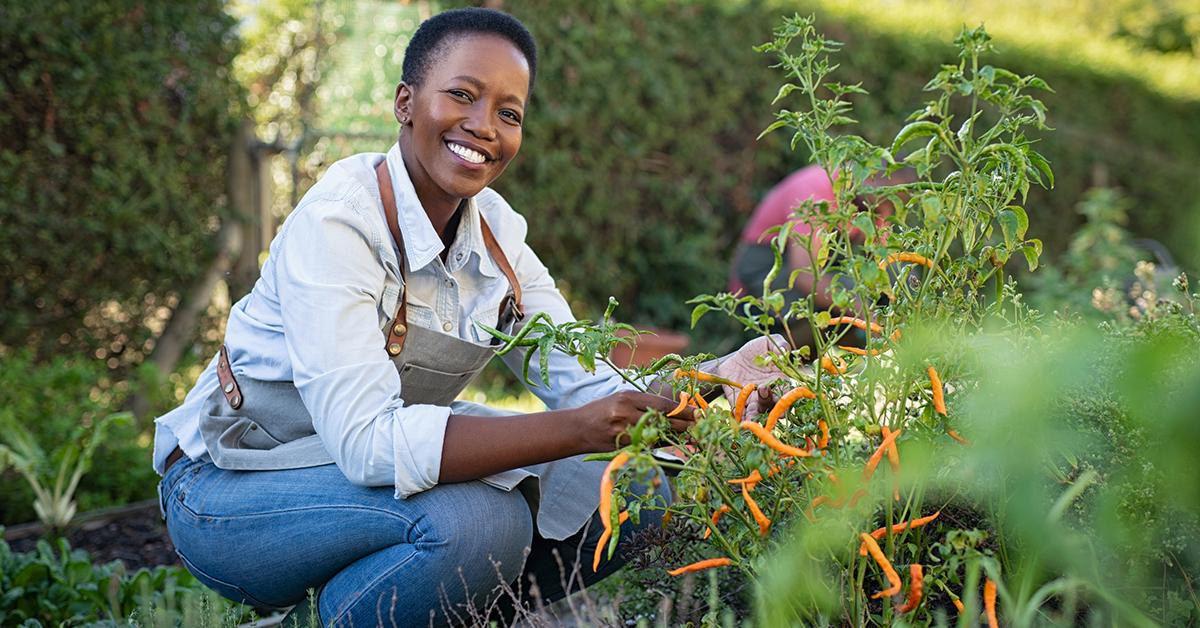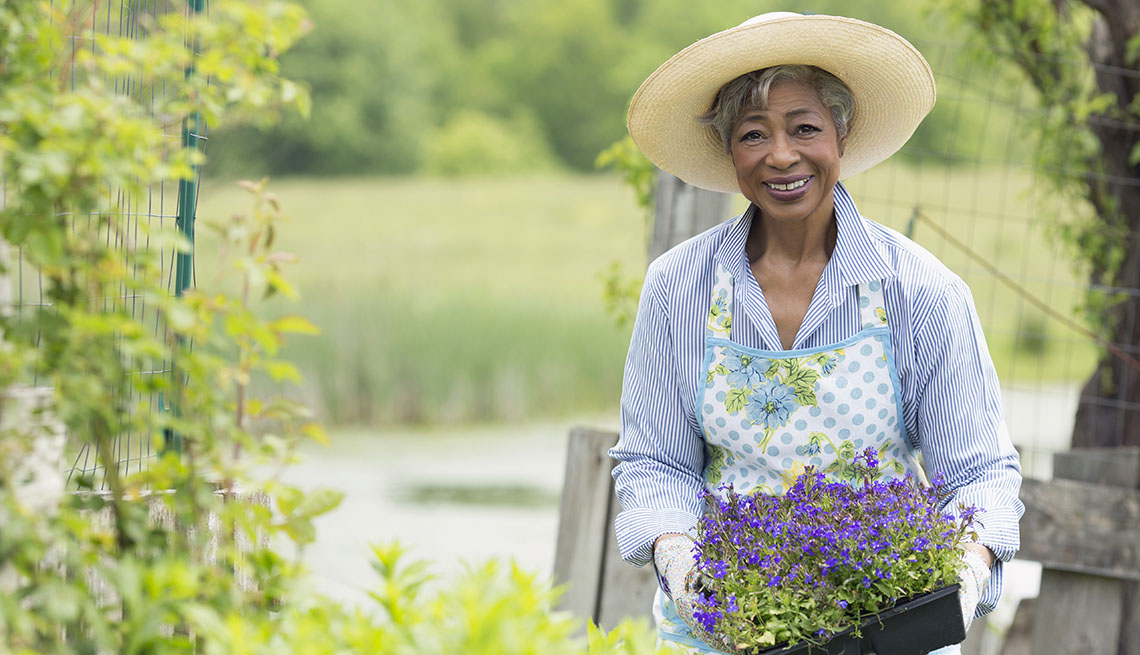Understanding the Different Sorts Of Horticulture and Exactly How They Add to a Healthier Way Of Life and Setting

Benefits of Veggie Gardening
Many people are significantly identifying the myriad benefits of veggie horticulture as a crucial element of a healthier way of living. Engaging in vegetable gardening provides many physical health benefits, consisting of boosted physical task, which boosts cardiovascular wellness and advertises overall health and fitness. The act of growing, weeding, and harvesting needs activity and can assist combat inactive actions, adding to weight management and improved muscle tone.
In addition, cultivating one's own vegetables substantially boosts nutritional top quality. Homemade produce is typically fresher and a lot more nutrient-dense contrasted to store-bought options, as it can be taken in shortly after harvest. This availability motivates a greater intake of fruits and vegetables, which are important for stopping persistent conditions.
In addition, vegetable horticulture cultivates mental health by offering a restorative electrical outlet for tension alleviation and relaxation. Jointly, these benefits highlight the relevance of vegetable gardening as a foundation of a much healthier way of living.
Exploring Blossom Horticulture

Along with visual advantages, flower horticulture sustains regional environments. Numerous blooming plants attract pollinators, such as bees and butterflies, which are important for keeping biodiversity. The presence of varied flora can additionally improve dirt health and wellness, as various plants contribute to nutrient cycling and enhance dirt framework.
Moreover, blossoms can play a significant role in promoting lasting techniques. Numerous garden enthusiasts choose indigenous or drought-resistant types, which call for less water and marginal chemical inputs. This technique not just profits the atmosphere however additionally motivates accountable horticulture routines.
Eventually, flower gardening functions as an important component of an alternative horticulture strategy. Gardening. By growing beauty and sustaining regional environments, it balances with veggie horticulture and emphasizes the relevance of nurturing both our physical and mental wellness via nature
Container Gardening Advantages
Container gardening offers countless benefits that make it an appealing alternative for both amateur and experienced gardeners. One of the primary advantages is its flexibility; containers can be put on outdoor patios, terraces, or perhaps inside your home, enabling for gardening in rooms with minimal ground access. This adaptability makes it possible for individuals in urban environments or those with tiny backyards to internet cultivate plants successfully.
In addition, container horticulture offers boosted control over soil high quality and dampness levels. Garden enthusiasts can select certain dirt mixes to enhance plant health and wellness and reduce concerns like weeds and bugs. The wheelchair of containers likewise enables easy relocation to make the most of sunlight direct exposure or safeguard plants from severe weather condition.
In addition, container gardens can be visually pleasing, supplying an opportunity for imagination in design. Gardening. They can serve as ornamental elements that boost exterior or interior rooms while promoting biodiversity by attracting pollinators
Last but not least, container gardening can contribute to a healthier lifestyle by encouraging physical activity, as it often involves training, growing, and keeping plants. In general, the advantages of container horticulture make it an obtainable and rewarding technique for those seeking to improve their lifestyle and environment.
The Rise of Upright Gardening
As city rooms come to be increasingly crowded, the pattern of upright horticulture has actually taken off, enabling individuals to optimize their horticulture potential in minimal areas. This cutting-edge method involves read review growing plants in upright structures, such as wall-mounted planters, trellises, or specialized vertical garden systems. The appeal of upright gardening lies not just in its efficient use area but likewise in its aesthetic contribution to metropolitan environments, changing bare walls right into lavish green landscapes.
Upright gardens can be set up in homes, balconies, and neighborhood spaces, providing a system for expanding a range of plants, including herbs, veggies, and decorative flowers. This method motivates biodiversity and can boost air high quality by filtering system toxins while promoting a link to nature in densely inhabited locations. Furthermore, vertical horticulture provides practical advantages, such as boosted yield per square foot, making it an appealing choice for urban gardeners looking for to expand their very own food.

Lasting Practices in Horticulture
Welcoming sustainable techniques in gardening is necessary for advertising ecological wellness and guaranteeing the feasibility of our all-natural resources. Sustainable gardening strategies focus on lowering ecological check my source influence, conserving water, and cultivating biodiversity. By carrying out methods such as natural gardening, garden enthusiasts can decrease using synthetic plant foods and chemicals, which can damage neighborhood ecological communities.
Friend growing is an additional efficient lasting technique, where certain plants are grown with each other to boost development and discourage bugs naturally. In addition, utilizing indigenous plants in landscaping supports local wild animals and calls for much less upkeep, as they are naturally adapted to the neighborhood climate and soil problems.
Water preservation strategies, such as rainwater harvesting and drip watering, aid to efficiently manage water resources, thus minimizing waste. In addition, composting organic waste not only improves the soil yet additionally minimizes land fill payments, promoting a round economic climate.
Last but not least, practicing crop rotation and cover chopping improves soil wellness and lowers the risk of bug problems. By integrating these lasting techniques, garden enthusiasts can develop resilient ecological communities that add to a much healthier lifestyle while safeguarding the environment for future generations.
Conclusion

Finally, the diverse methods of gardening, including veggie, blossom, container, and vertical horticulture, jointly advertise a much healthier lifestyle and boost ecological sustainability. Each kind provides unique benefits, from offering fresh produce and attracting pollinators to maximizing limited spaces and motivating biodiversity. By promoting lasting practices, these horticulture approaches not only add to private health but additionally sustain broader eco-friendly preservation efforts, inevitably lowering dependence on commercial farming and enhancing neighborhood strength.